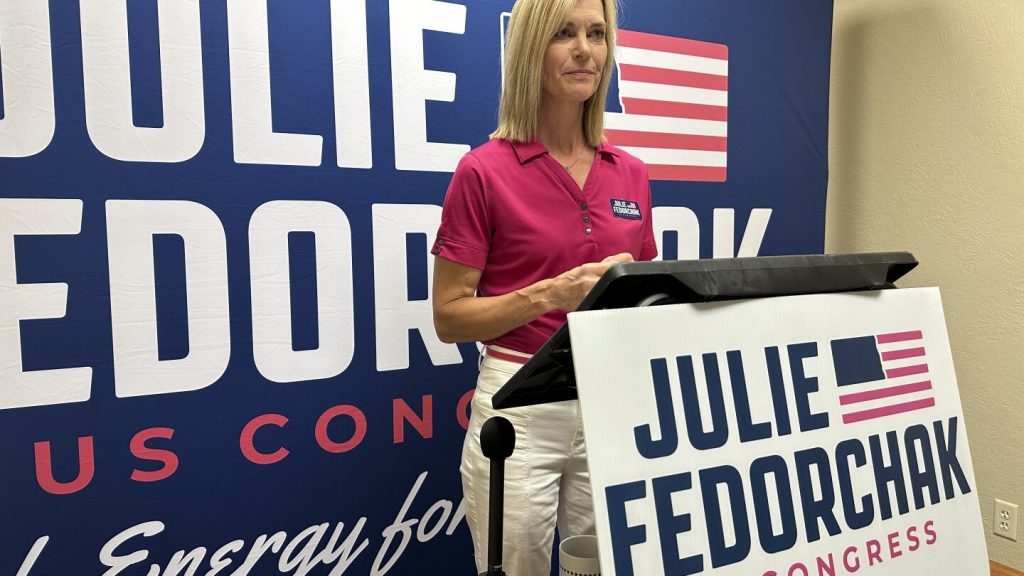The Republican primary winner for North Dakota’s only U.S. House seat, Julie Fedorchak, was the target of false text messages spreading misinformation that she had dropped out of the election on the day of the June 11th election. Her attorney, Shane Goettle, has filed complaints with federal authorities, alleging election interference and fraudulent use of texting to deceive voters. The messages misrepresented media headlines and an interview segment to make it appear as though Fedorchak had withdrawn from the race, even though she had only withdrawn from a contentious endorsement process at the April convention.
The misleading text messages reached thousands of North Dakotans, and Goettle believes that they may be a testing ground for a wider effort to disrupt elections in the future. He suspects that whoever is behind these messages may use them as a tool to interfere in elections across the country if successful. The campaign has identified some phone numbers involved in sending the messages, all with North Dakota’s 701 area code, but they do not have specific information about the perpetrators. Fedorchak’s Republican opponents have denied involvement, and the state Democratic-NPL Party has condemned the messages, as well as similar ones urging Democrats to vote for a Republican candidate in the primary.
Goettle believes that the nature of the North Dakota race, with five candidates in a small-population state, may have provided a smaller market to beta-test the misleading messages before potentially launching a larger effort. The campaign has not revealed the contents of the complaints filed with the Federal Election Commission and the Federal Communications Commission, as they do not want to publicize names when it’s unclear if the individuals or entities still own the phone numbers used to send the messages. Despite the deceptive tactics used against Fedorchak, she continued in the primary race and emerged as the winner, demonstrating her resilience in the face of misinformation and interference.
The incident involving false text messages targeting Fedorchak highlights the vulnerability of the electoral process to disinformation campaigns and election interference. As the 2024 election approaches, there is growing concern about the potential for similar tactics to be used on a larger scale to manipulate voters and disrupt the democratic process. By alerting federal authorities and taking legal action, Fedorchak’s campaign is sending a strong message that such tactics will not be tolerated and that safeguards must be put in place to protect the integrity of elections. It remains to be seen whether the perpetrators behind the misleading text messages will be identified and held accountable for their actions.
The implications of the false text messages extend beyond the North Dakota primary race, serving as a warning for future elections at all levels. The use of technology to spread disinformation and deceive voters poses a significant threat to the democratic process, and measures must be taken to combat these tactics effectively. By raising awareness about the issue and taking proactive steps to address it, campaigns like Fedorchak’s are working to safeguard the integrity of elections and ensure that voters are not misled by malicious actors seeking to undermine the democratic process. As the investigation into the false text messages continues, it is essential for federal authorities to prioritize the protection of election integrity and hold those responsible for interference accountable for their actions.


